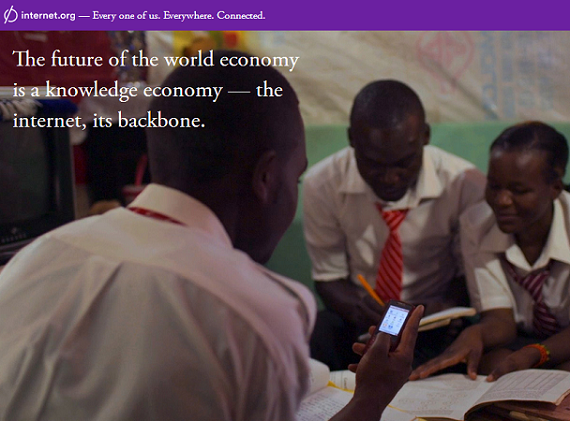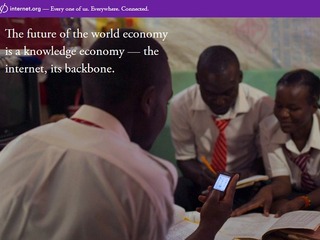
Mark Zuckerberg’s Internet.org has some pretty lofty goals; namely to bring everyone around the globe online. So far, the project, which was first announced in August of last year, has been mostly talk, stating the goals of what it wanted to do, and as well as some details on how it planned to do it.
Now the organization is finally getting down to the action.
In advance of Mark Zuckerberg taking the stage at the Mobile World Congress in Barcelona on Monday, Facebook announced three partnerships that will help bring the organization’s mission to fruition.
- The first is a pilot project called SocialEDU, which will help provide students in Rwanda with free access to a collaborative online education experience.
For the project, Facebook partnered with the Rwandan government, Nokia, edX and Airtel.
Nokia will be providing “affordable smartphones that will improve the quality and ease of Internet access,” while edX will be creating a mobile app that is integrated with Facebook to create a social educational experience. Airtel will be providing free education data for everyone in Rwanda who participates in the program for one year.
Meanwhile, the Rwandan government will help bring device prices down even further by supporting financing mechanisms, such as interest rate subsidies, micro-loan guarantees, trade-in rebates, and targeted use of its Universal Service Fund.
The Government will also be expanding its Smart Kigali program in order to provide free wi-fi in campuses throughout the country. It will also be working with edX to adapt course materials for local students.
- The second partnership is with Ericsson to create the Internet.org Innovation Lab, which will give developers the ability to test their apps in real world environments at Facebook’s Menlo Park headquarters.
The idea was born out of a recent Facebook/Ericsson-hosted Internet.org efficiency hackathon, and the Lab will simulate network conditions typically found in growth markets. This will give developers an environment to test and optimize their applications for new customers across different regions.
Chiefly, the Lab will help remove a key barrier that has prevented everyone from having Internet access: that developers only have access to the network environment of their physical location. Consumers, however, have different network environments, with multiple operating systems, and numerous devices.
The joint innovation lab will allow for developers to be able to test on multiple network environments.
The lab is expected to open in the second half of 2014.
- The third partnership is with Unilever, and its goal is to bring Internet access to the millions of people who live in rural India.
Unilever and Internet.org will be researching the challenges, and barriers, to getting Internet access to these areas. That does not just include physical problems, like infrastructure, but other factors, such as educational and cultural, that may have impeded development.
This research will then be used to develop “a series of on-the-ground projects” that will help India, a country where only 13% of its population has Internet access, become more developed.
Finally, Facebook also partnered with Deloitte, in order to study the impact internet access can have on economic and social conditions in the developing world.
The report found that increased Internet access could increase productivity by as much as 25%, generate $2.2 trillion in GDP and more than 140 million new jobs, lifting 160 million people out of poverty.
(Image source: http://internet.org)


















